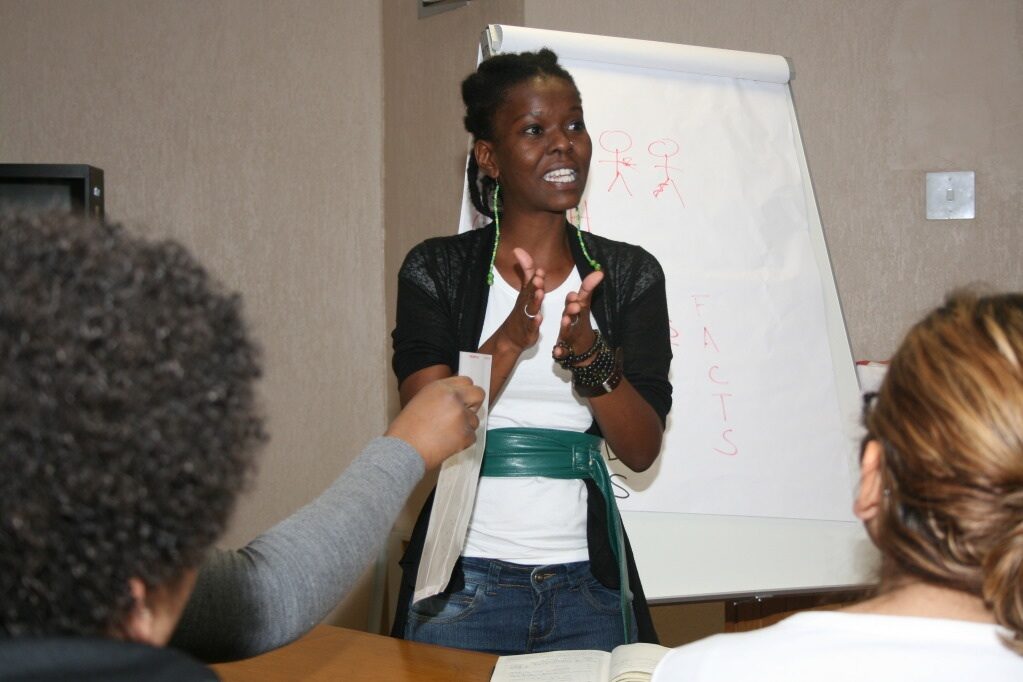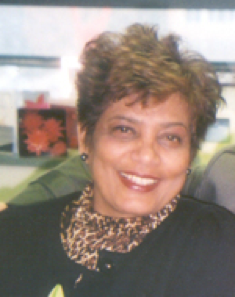
HIV education at Center for the AIDS Program of Research in South Africa (CAPRISA). Photo: Pedagogy in Action.
In the last three decades, her work has focused on empowerment pedagogies and marginalized populations, which have been centered on HIV, gender and gay identities. She has developed several innovative oral educational modules on HIV/AIDS, violence and women’s reproductive health, including the Pedagogy of Action Program in South Africa and Southeast Michigan.
She talks about her work on HIV education in low-literate communities globally on World AIDS Day. Haniff can be contacted at nzh@umich.edu.

Nesha Haniff, Department of Afroamerican and African Studies
Q. What are some of the struggles against HIV today?
Haniff: My work on HIV focused on the issues of accessibility of HIV education to the low-literate communities, not only in Africa but also in Southeast Michigan. I have worked for more than 10 years in Detroit, Ypsilanti and Ann Arbor—specifically in African-American communities, where the problem is pervasive.
There are daily struggles against homophobia, on the stigma against those infected, and the unrelenting gender injustice in the world including HIV.
Q. In your opinion, who are the vulnerable populations?
Haniff: You cannot work in HIV prevention without dealing with women and gay populations, which remain the most vulnerable populations. I became very involved with the Jamaica AIDS Support for Life where the work was heavily concentrated on both homophobia and HIV. One of the outcomes was a class I have taught in women’s studies for many years called “Homophobia in the Black World.”
Women have historically had little to protect them from HIV and other sexually transmitted infections. This is simply because science is male centric. Even with prep, the main prevention tool is the male condom, and the female condom is a flipped out male condom which is unfriendly to women. Women’s HIV prevention is in men’s hands, and their foundational inequality leaves them unable to negotiate safe sex.
Women’s health cannot be addressed without working with women and to conscientize them to not be silent about gender injustice. This is what has stayed with me in my years of work in HIV and what motivates me today.
Q. How has your research on HIV evolved?
Haniff: I started in 1989 in Guyana when I was teaching women about their bodies in the Caribbean so they could teach their own communities. One day they asked me to teach them about AIDS.
It was then that I developed a methodology for people with low literacy to learn HIV prevention and then use that methodology to teach their own communities. This is the method that we have used in South Africa, the U.S. and the Caribbean for over 30 years now and has now become the Pedagogy of Action.


